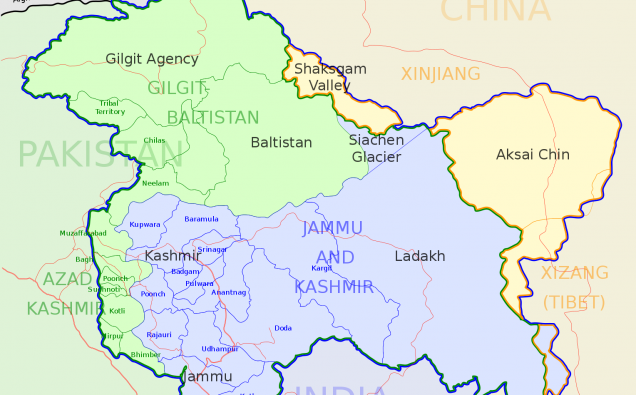
India, which allied itself with the Soviet Union during Cold War era, used Moscow to veto a number of resolutions in the UN Security Council aimed at resolving the Kashmir dispute.
In fact, the Soviet Union regarded the restive state of Jammu and Kashmir a part of India. The Soviet Union’s successor, Russia, maintained that position for some time but then began moderating it by calling for dialogue between India and Pakistan to a settle the Kashmir dispute.
Now that India has moved into the American orbit and Pakistan has improved its ties with Russia, a statement from a senior Russian delegate diplomat at UN on Friday appeared to indicate further change in Moscow’s position that surprised Indians.
Dmitry Polyanskiy, Russia’s Deputy Permanent Representative to the United Nations, expressed hope during a closed-door consultation of the Security Council at UN headquarters in New York that India and Pakistan would have good neighborly relations in line with the charter and the relevant resolutions of the world body. .
The meeting on Kashmir was called by China, the first after more than 55 years. It took place amid widely condemned Indian military clampdown on Kashmir and PM Narendra Modi’s integration of the disputed Kashmir territory into India in violation of UN resolutions.
Here is how Polyanskiy balanced diplomacy and outreach to both South Asian countries in a series of tweets with a call for settlement of the Kashmir dispute and references to UN resolutions on Pakistan-India relations:
“on the basis of Simla Agreement of 1972 and Lahore declaration of 1999, in accordance with UN Charter, relevant UN resolutions and bilateral agreements between India and Pakistan
“#Russia continues to consistently promote normalisation of #India – #Pakistan ties. We hope that existing divergences around #Kasmir will be settled bilaterally by political and diplomatic means only.”
Polyansky’s public references to “UN Charter” and “relevant UN resolutions” in the tweets surprised many in India.
Many Twitter users expressed their reactions, with Indians interpreting it in their nationalistic way and Pakistanis hailing Russia’s position as balanced and supporting Islamabad’s principled and moral standing on the long-simmering conflict.
The UNSC meeting on Friday, China’s emphatic position on Kashmir, President Doandl Trump’s call for Pakistan-India bilateral dialogue, and the Russian diplomat;s tweets represent a growing internationalization of the Kashmir dispute – something that Modi never wanted. Meanwhile, Pakistan’s PM Imran Khan has also launched rounds of scathing attacks against the Modi government, calling it a fascist regime.
India’s international diplomacy on keeping the Kashmir issue has long revolvesd around its contention that the Simla Agreement – inked by Indira Gandhi and Zulfikar Ali Bhutto in 1972 – rules out any UN role or a third party mediation on the longstanding dispute.
Indian Prime Minister late Atal Behari Vajpayee and Pakistan’s Nawaz Sharif recommitted to the Simla Agreement in 1999 Lahore Resolution.
The Indian argument on Simla Agreement being the only vehicle to resolve the dispute is not as strong as it has made it out to be. The accord clearly states that relations between the two countries would be governed by UN Charter.
The ultranationalist BJP government – which has seen attacks against Muslim and Christian minorities soar on its watch – recently expressed its aversion to third party mediation in response to U.S. President Donald Trump’s offer to facilitate the two countries towards a settlement of the dispute.
So, New Delhi is feeling visibly perturbed as it sees the Russia diplomat joining China in calling for efforts to resolve the Kashmir issue and cites UN resolutions on promoting relations between the two South Asian nuclear-armed countries.
Pakistan had reached out to Russia before the UNSC meeting with the foreign ministers of the two countries having a conversation.
In recent years, Moscow has been attempting to repair its relations with Islamabad, a Cold War era opponent, even as New Delhi has gotten closer to Washington.
Moscow seems to have realized that any influence in Afghanistan cannot come by antagonizing Pakistan. China and Russia are among major countries jockeying for influence in the region as the United States plans to withdraw its forces from Afghanistan through an agreement with Afghan Taliban.
Views and News writer Iftikhar Ali contributed to this report from New York
















